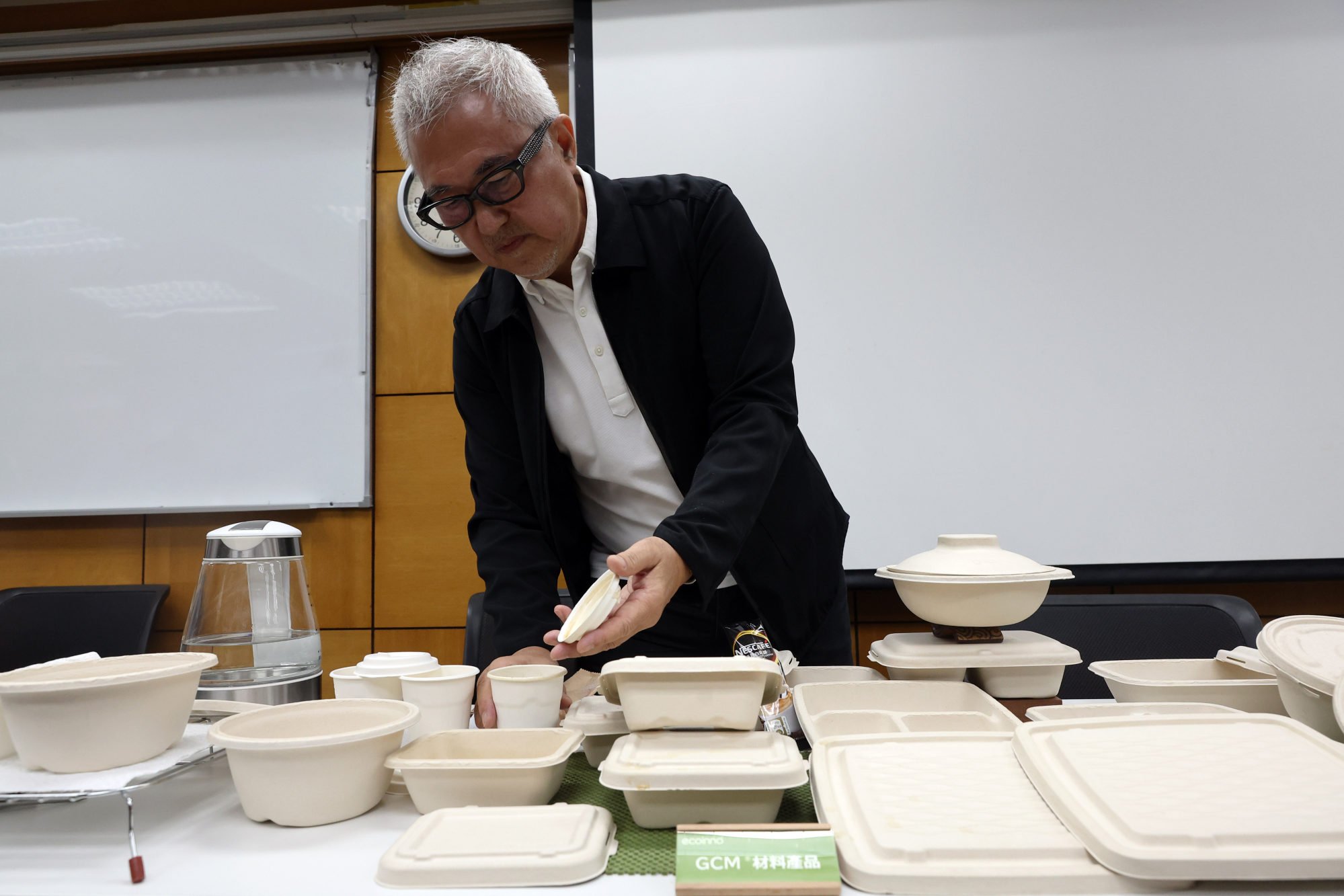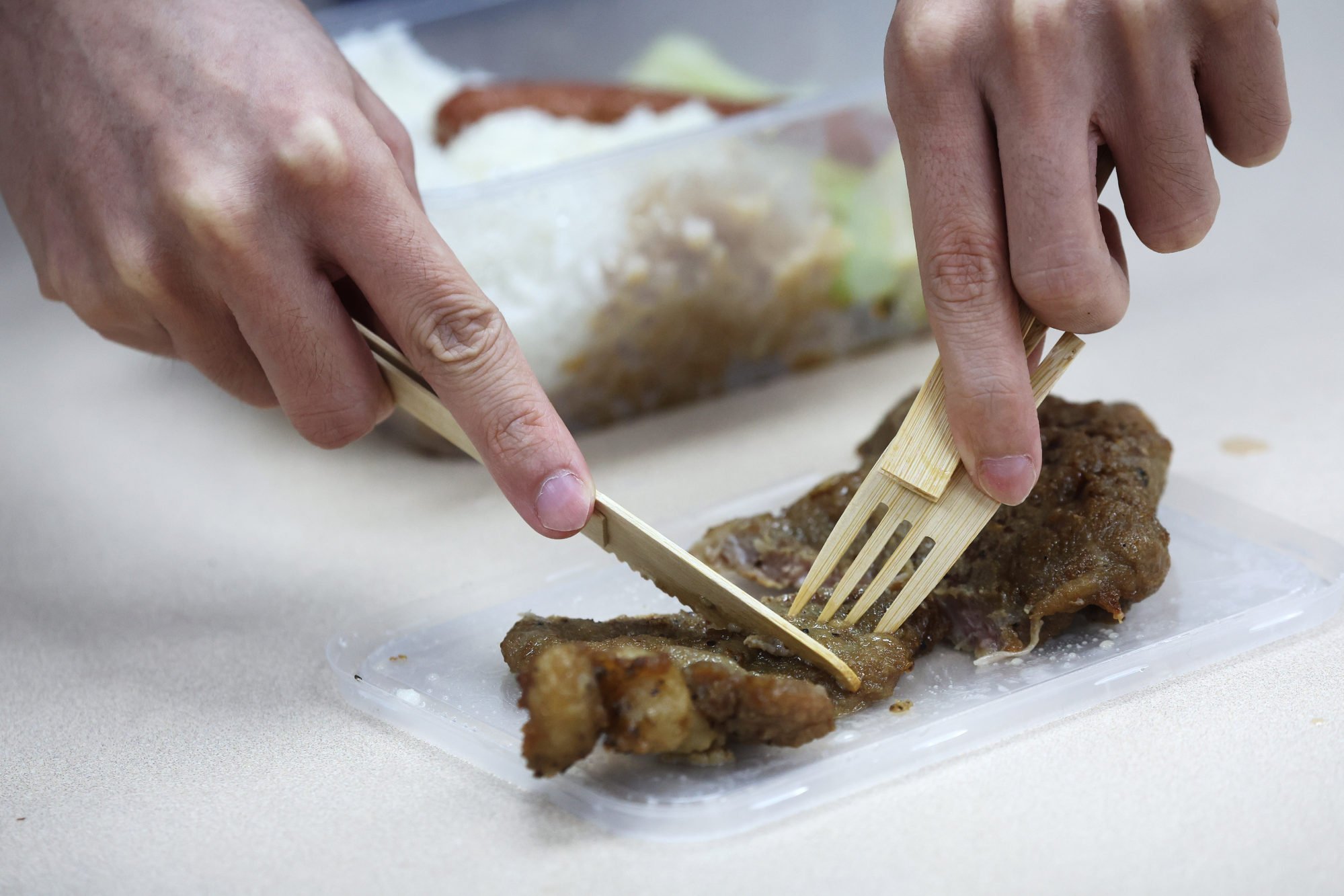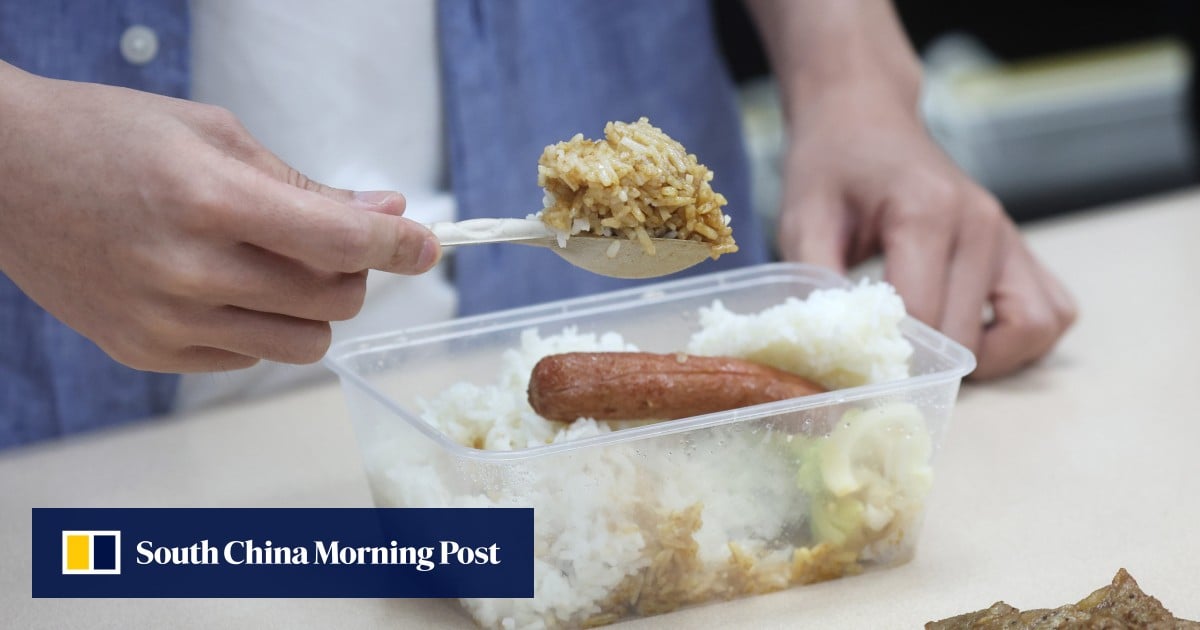“We are very used to plastics, but we need to get used to a world without plastics,” he said.
“We should become more familiar with these products, and give the market opportunities to explore them and then select suitable products … and users should be more patient and supportive to allow the industry to gradually change and achieve a common goal.”
During a press conference, all four suppliers gave demonstrations of their products, which included cutlery, straws and containers made of wood, bamboo and paper.
The companies are registered on the Green Tableware Platform, an Environmental Protection Department initiative which lists alternative products able to be used under the ban.
The ban on single-use plastics took effect on Monday. Under the first phase, styrofoam products and throwaway plastic utensils such as cutlery and straws were banned for takeaway purchases.
Single-use plastic tableware was no longer available to patrons dining in.

Alvis Yip Pak-lun, founder of Supply Ching Company, showed how its bamboo knives and forks could be used to cut meat, as well as its paper rice spoon to serve the dim sum dish of glutinous rice and chicken.
He said the paper spoon was designed to be straighter than others with a more curved shape, making it easier to hold glutinous rice, which was a dish some residents had complained about eating with the alternative cutlery.
“It is a problem of design, not material,” Yip said, adding tableware with different shapes should be selected depending on the type of dish.
Chris Wong Chi-shing, a representative from H-Square Hospitality Total Solution Company, which mainly sourced their non-plastic tableware products from mainland China, showcased its paper straws, sliding them through three bubble tea drink lids.
Hong Kong clarifies plastics ban for eating takeaway sushi at supermarkets
Hong Kong clarifies plastics ban for eating takeaway sushi at supermarkets
He said paper was used mainly because of its relatively lower cost compared with other materials.
Chen of Ecoinno (HK) was keen to show the durability of its food containers and coffee cups with boiling water.
He said the major problems of non-plastic products included their ability to withstand oil and boiling water, but his company’s goods were made entirely of plant fibre materials, which were resistant to high and low temperatures as well as oil.
“We have been developing totally 100 per cent plant fibre material but have all the functionality that does not use any chemical treatment or whatever,” he said.
But the demonstrations were not without hiccups.
The representative of Sun Cheong Hong Stationery and Paper, Calvin So, accidentally broke two forks as he tried to cut a piece of meat with the bamboo utensils.

He said the joint in the two-part bamboo fork could weaken after being used many times.
The Environmental Protection Department’s Green Tableware Platform was set up in 2022.
The platform provides information about alternatives to disposable plastic tableware, and helps the industry and the public to source products that meet the requirements of the latest ban.
Tableware suppliers in the city, or other jurisdictions, can sign up to have their products listed on the platform, provided they meet the requirements.
More than 60 suppliers and over 780 non-plastic disposable tableware products are registered.

